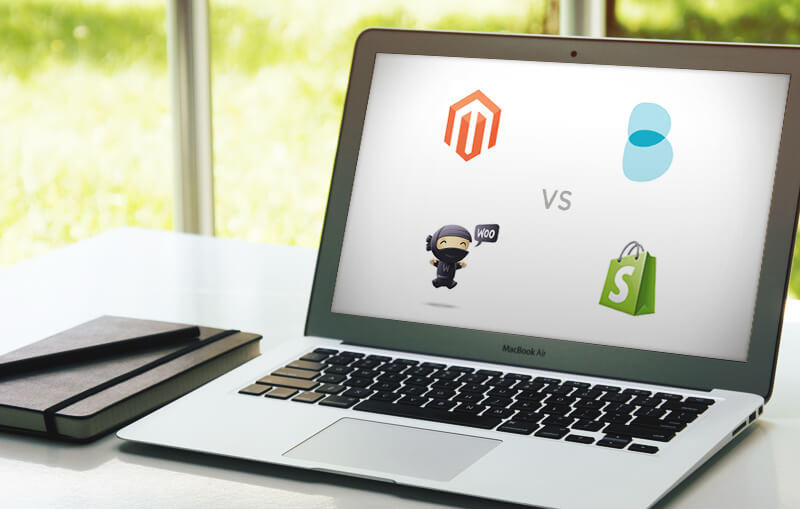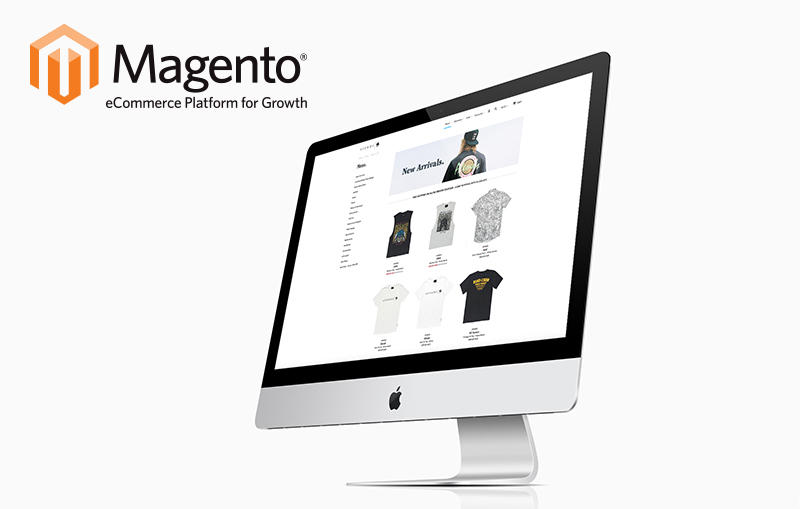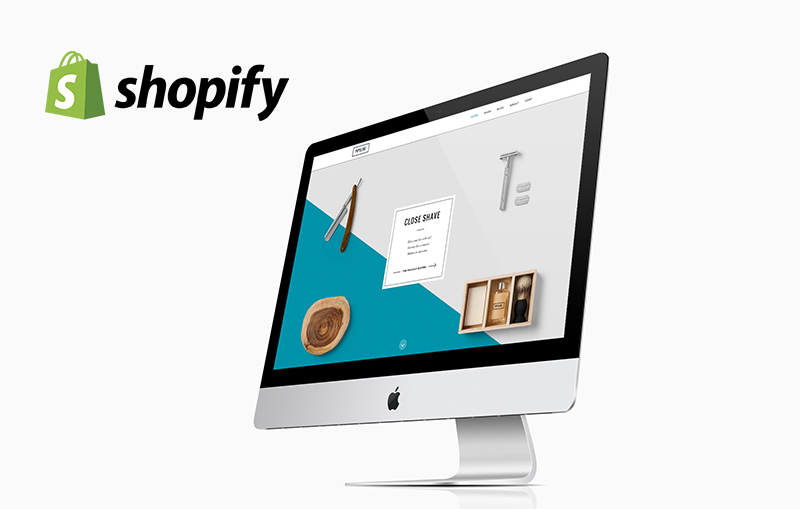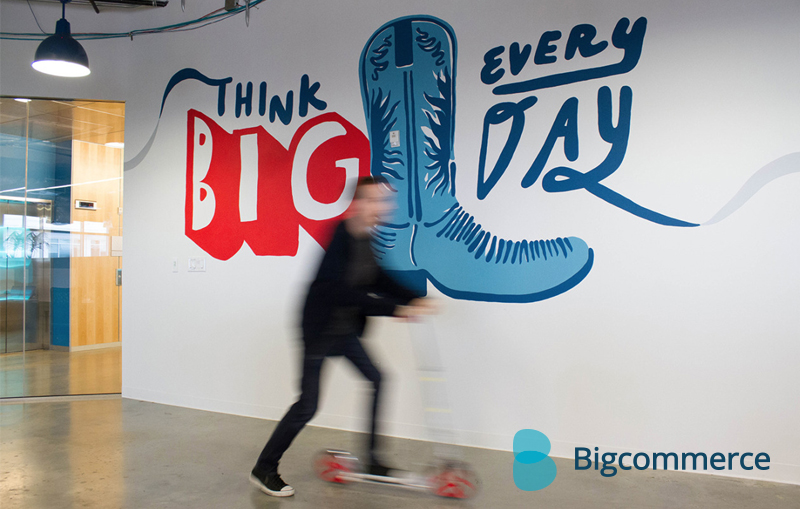
Magento Websites Brisbane | Magento Websites Sydney | Magento Websites Melbourne
When it comes to building an ecommerce website for your business, there are many things to consider – the main one being which platform you’re going to use. This article outlines the ‘big four’ when it comes to ecommerce platforms: Magento websites, Shopify, Bigcommerce and WooCommerce.
Which one wins the race? Read on to find out!
Magento Websites
A popular open-source CMS designed for ecommerce websites, Magento is now solely owned by eBay. Recent research shows that it accounts for around 30% of the market share amongst the thirty most popular ecommerce platforms.
There are two different versions of Magento websites: Magento Community Edition which is free, and Magento Enterprise Edition which offers additional functionality and features, yet has a licensing fee. The Community Edition is suitable for smaller businesses, while the Enterprise Edition is usually a better option for larger companies.
Pros
It is open-source, which means it offers greater flexibility. Web designers and developers used to working with this platform should have no issues modifying or expanding Magento websites to suit the needs of their clients.
It’s always evolving. The platform has a large community of users and developers (since it is open-source), meaning the platform is always improving. What does this mean? Simply put, it means that there are new extensions, templates and widgets being made available all the time – some are free and some are commercial (and therefore have a cost attached).
It’s SEO friendly. Magento websites are SEO friendly by default. However, there are many extensions available for this platform that help to ensure your website is correctly and efficiently optimised.
It accommodates third party services. The platform seamlessly integrates with important third party services, such as Google Checkout, Google Analytics, Google Website Optimizer, PayPal and much more.
Cons
Magento websites are relatively complex. An intricate program built on top of the Zend Framework, it’s programmed based on the MVC approach and follows best web programming practices. What does this mean? In simple terms, it means that in most cases you’ll need an experienced web designer/developer who is proficient with this platform if you are to create a good website using it. It also means it’s more complex to manage once built, which can pose a problem for those who are less than tech savvy.
It’s often more expensive to develop a website using Magento. Of course this depends on the web design agency you choose and the functionality you require, but this platform is often more expensive due to its complexity. If Magento is to be customised properly, it does take more time to develop – and more time equates to a greater cost.
It can be hard to find really good Magento website designers and developers. Because it is a relatively complex platform, highly proficient designers and developers are rare – particularly within the one company.
Without a good host, it can be slow. This is not a fault with Magento websites per say, it just means that you have to considers your hosting options carefully. It’s important that you choose a host with a good server and a great team to set it up and manage it properly.
Shopify
Founded in 2004, Shopify is a Canadian-owned ecommerce platform that came about when its creators wrote the software for their online snowboard store. Touted as clean, simple and easy to use, the turn-key platform has been profiled in a wide range of publications, including The Wall Street Journal and the New York Times.
In 2009, it became possible for developers to create applications for Shopify online stores and sell these apps via the Shopify App Store.
Pros
It’s fast and secure. When it comes to running an ecommerce store, you need it to be two things: fast and secure. Shopify ticks both of these boxes, as it has built-in speed and security for hosting. What does this mean? The site will load quickly for customers, and you’ll get paid. An all in one solution, Shopify allows you to leave issue such as hackers, caching and compliance to the professionals!
It has everything you need. As mentioned in the previous point, this platform really does have everything you need (it’s what you call ‘turn-key’ software). From a business perspective, it’s great: it gives you all the necessary features and you don’t have to worry about a thing.
Customer support. Unlike many platforms, you’re never alone with Shopify. This platform offers phone support (with helpful staff on the other end of the line), chat forums and an extensive database of FAQs. For those who are looking to manage their website independently, this is incredibly handy.
It’s super SEO friendly. In fact, it’s marketing friendly in general. Shopify allows you to create 100% crawlable, clean code for the search engines, whilst also making it quick and easy to create landing pages. In the current climate when SEO, AdWords and general web visibility is everything, this is a very important advantage.
The additional features are endless. Shopify has plenty of in-built features, however it also has an app store that accepts contributions from developers across the globe. What does this mean for your website? You’ll be able to get the specialised functionality you need!
Cons
The cost. While this isn’t to say it’s not worth it, Shopify can prove to be relatively expensive compared to some other platforms. There are a number of costs to consider, such as the cost per month, platform transaction fees and also credit card fees. In addition, there are also ‘add-on’ fees if you are purchasing third party apps and plugins.
It’s a little harder to customise. Yes, the platform does offer a wide range of in-built features and addition apps, however some people like to be able to tweak and customise these things. This platform uses a unique setup (Ruby) to customise themes rather than standard programming languages such as PHP – meaning customisation is harder for the uninitiated.
The blogging software could be better. It’s there, but it’s got nothing on actual blogging platforms such as WordPress. Since content marketing is a huge factor in today’s digital landscape (especially when it comes to SEO), it’d be great if Shopify made it a little easier to post and share content.
The random terminology used. With any platform, it takes a bit of time to get used to the jargon used – that’s normal. However Shopify’s jargon is a little more confusing than your average ecommerce platform, which can be frustrating for some.
Bigcommerce
A privately held technology company, Bigcommerce was founded in 2009. In January 2013, the company released a $2 million integration fund for developers and in 2015 it launched Bigcommerce Enterprise – a platform designed for high-volume retailers.
Essentially an all in one turn-key solution, Bigcommerce provides you with everything you need to get your online store up and running.
Pros
It’s educational. Bigcommerce offers endless advice when it comes to managing a website and running an online store for the first time (via Bigcommerce University). For those who are new to the game, this can be very helpful.
Speed and security you can rely on. Being an all in one solution, this platform allows you to hand over speed and security issues to the professionals. While many feel that it isn’t quite as fast as sites such as Shopify, it’s still impressively fast – and the security is rock-solid.
All the features you need – built in. One of the best things about Bigcommerce is the fact that it has all the main features you need already built in and ready to go. From inventory management through to coupon code creation, there’s barely anything left to add!
Built in marketing tools (and yes, it is SEO friendly). This platform has included a number of effective marketing efforts for those who are new to the online retail game, such as Google Shopping, eBay store integration and AdWords ad generation. In addition, Bigcommerce is also very SEO friendly in the way it’s set up – especially the customisable category pages and canonical product pages!
It’s easy to design and develop. It looks great straight out of the box, has easy to install themes, and if you’re familiar with HTML or CSS (common programming languages, so it’s easy to find a developer) you’ll be able to create minor design customisations with ease
Cons
The cost. Like many turn-key solutions, Bigcommerce isn’t your cheapest option when it comes to building an ecommerce store. There are a number of costs to consider, such as the monthly price, platform transaction fees and credit card fees. Add-on fees are less of a problem, since many common add-on type features are built into Bigcommerce for free.
Fewer add-apps. Yes, this was a positive point earlier – and it still is for those who don’t require a highly specialised website. However, if you do require something beyond the built in features, you’ll find that it’s slim pickings.
Limited customisation options in terms of functionality. Bigcommerce is a platform that works well and it’s great for those who want a fuss free ecommerce website. However for those who are interested in tweaking their site’s functionality, this platform is lacking. While it’s fairly easy to edit the design, it’s hard to alter the code – therefore making it difficult to customise the functionality.
Woocommerce
Launched back in 2011, WooCommerce is an open source plugin for WordPress sites. Suitable for both small and large online retailers, it’s known for its simplicity to install, its ability to customise and the fact that it is free.
Data collected in 2015 suggests that WooCommerce runs on approximately 30% of ecommerce websites.
Pros
It’s free. Unlike other ecommerce platforms that charge a range of fees, the WooCommerce plugin is open source and free.
Flexibility and customisation is endless. Being open source, the options are endless when it comes to customisation. New features are being created every day and you (or your developer) can create specific features for your website that don’t yet exist. This flexibility allows you to take full control of your store and its content.
It can be very SEO friendly. It’s great from an SEO perspective, especially if you buy the (relatively cheap) WooCommerce SEO plugin. This plugin is ideal for those who are optimising their website, and makes it very easy to ensure your ecommerce site is as good as it can be in the eyes of Google.
Cons
Maintenance is in your hands. Unlike turn-key solutions that are looked after by the software company, WooCommerce is left in your hands. Therefore you need to know how to maintain and run a website (and you need to understand two platforms, WordPress and WooCommerce), or hire someone who does.
Expert knowledge is needed to customise. Yes, the customisation options are endless – but you need a fair amount of knowledge if you’re going to implement new functionality and create a truly robust ecommerce website.
Some add-ons are costly. The WooCommerce plugin itself is free; however some additional features may attract a fee. For those that require a lot of add-ons, it can therefore become a little more expensive.
CONCLUSION
So which ecommerce platform is the best? Well, at the end of the day it really does come down to the needs and budget of the business in question. If you’re looking for an all in one turn-key solution that takes the hassle out of running an online retail store, Shopify and Bigcommerce are great options. Of these two, Bigcommerce is a slightly better option for those who simply want a site ‘that works’, while Shopify is more SEO friendly.
However when it comes to flexibility and customised functionality, Magento and WooCommerce offer more (although you need the tech knowledge or professional assistance to make it happen). These two platforms also offer a little bit more when it comes to SEO, which is a big consideration.
So there you have it; at the end of the day, the best ecommerce platform really does come down to your personal requirements!
Juno offers web development and management in Magento websites, Shopify, Bigcommerce and WooCommerce. Discover more here.
If you are in the market for an advertising agency, let us help you develop a strong visual identity.



